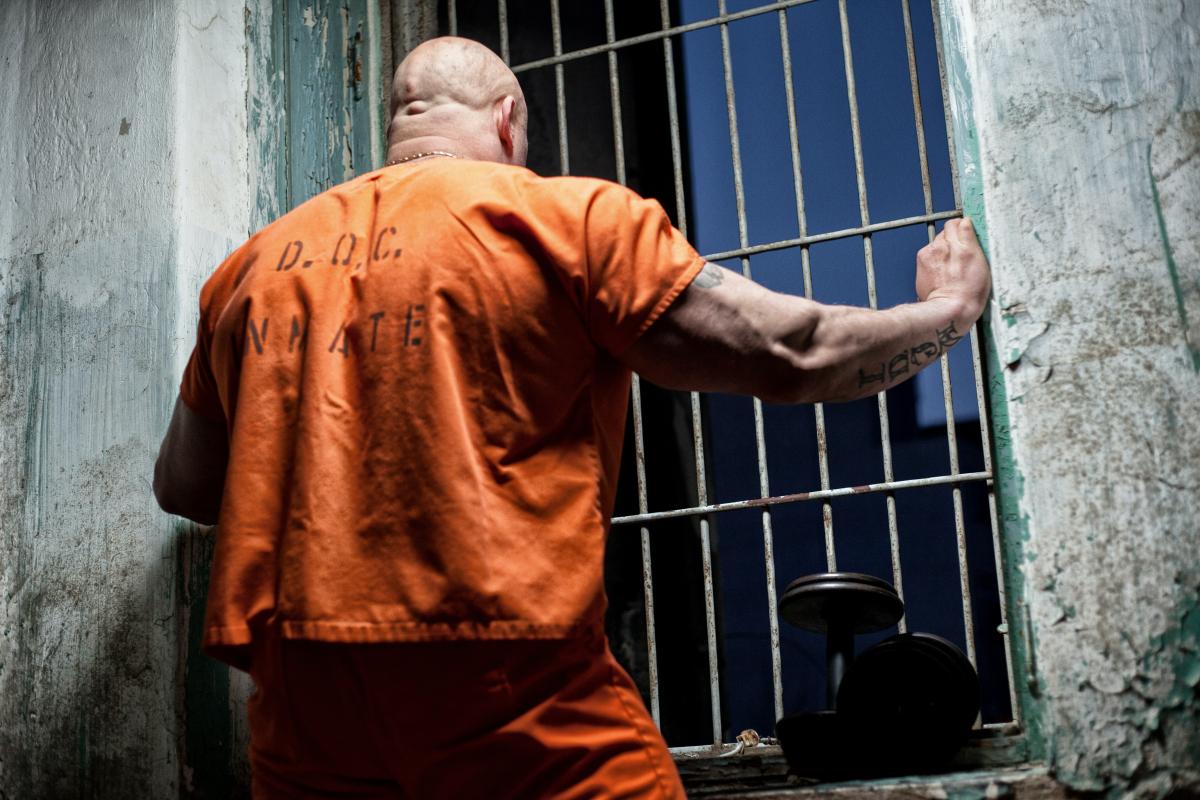A report released by the Maryland Center for Economic Policy suggests decreasing the state’s prison budget will lead to a healthier economy and increased public safety.
The report, released Wednesday, found that Black Marylanders are 4 1/2 times more likely to serve prison sentences than any other racial or ethnic group. Indigenous Maryland residents are twice as likely to be incarcerated than any other racial or ethnic group.
“None of what we’re doing is making any of us safer and it’s most certainly not making those Black communities that are being robbed of human capital ― it’s not making them any safer,” Tara Huffman, director of the criminal and juvenile justice program at the Open Society Institute-Baltimore, said during the Maryland Center for Economic Policy’s third annual policy summit Thursday afternoon.
“It’s destabilizing them even more and you cannot contain destabilization; it will eventually spread.”
Christopher Meyer, research analyst for the Maryland Center for Economic Policy, a liberal think tank, said at the summit that the state currently spends about $1 billion of its budget on incarceration.
“We’re spending all of that money locking up all of those Black folk, and we’re not any safer for it,” Huffman asserted. “We’re not any safer for it.”
Maryland has the highest rate of incarceration for Black men among the 50 states. Despite making up just 31% of the state’s total population, 70% of the prison population is Black.
According to Department of Public Safety and Correctional Services spokesman Mark Vernarelli, there were 18,300 sentenced individuals in the custody of the Maryland Department of Public Safety and Correctional Services at the end of October.
The agency also runs Baltimore City’s pre-trial facilities, which, according to Vernarelli, has population changes “very often.” At the end of October, those facilities held about 2,000 people.
According to a February 2015 Justice Policy Institute report, the Department of Public Safety and Correctional Services spent $288,304,000 of its $1 billion budget incarcerating Baltimore City residents, alone.
Huffman said that one-third of the state’s incarcerated population comes from the city. According to a 2019 estimate conducted by the U.S. Census Bureau, almost 63% of the city’s population is Black.
“What we know is that taxpayers in the state of Maryland are paying a lot of money from year to year to lock up a whole lot of Black folk,” she said. “Period.”
The report from the Maryland Center for Economic Policy said that there is “scant evidence” that heavy-handed sentencing policy leads to healthy economies and safer communities.
Instead, their report points to cutbacks in housing, healthcare, public transportation and economic opportunities and the criminalization of underground economy jobs, like sex work and the sale of illicit drugs, as factors that lead to increased incarceration and declining public safety.
For example, Marylanders who live in the 50 zip codes with the highest unemployment rates are five times more prone to being incarcerated than those living in other areas of the state.
The Maryland Center for Economic Policy recommends legalizing jobs in the underground economy, abolishing policies in the criminal justice system that criminalize poverty, and implementing comprehensive sentencing reform to decrease the state’s prison population.
Additionally, the findings of the report suggest that investment in public schools, public spaces and adequate drug treatment is the pathway towards a healthy economy and public safety.
“Then thinking about how we ensure that those investments are benefiting … communities,” said Meyers. “Again that comes back to measuring equity as part of the budget-making process [and] making sure that our investments are distributed geographically in an equitable way because we know housing discrimination makes geography really kind of a fulcrum of racial justice and injustice.”
By Hannah Gaskill




Stephen Schaare says
Why do you believe a much higher percentage of black people are incarcerated? Could they be the ones committing the crimes? You believe having these inmates back on the streets make the community safer? You have a very strange way of thinking. A class in logical thinking may be of great benefit. Just saying.
susan delean-botkin says
We should take the billion dollars spent on incarceration, and invest it in schools, mental health resources, job training, better housing, living wage jobs, etc in the hardest hit Black neighborhoods. We would end up with productive citizens who pay taxes, support their community and create an atmosphere is positivity.
James Elliott Richardson says
What are the fifty zip codes with the highest unemployment rate in the state of Maryland?
Sheriff Gamble says
“Legalizing jobs in the underground economy”????? So this group wants to legalize street drug dealing and prostitution and think that it will solve the problems in our urban centers. Non-sense.